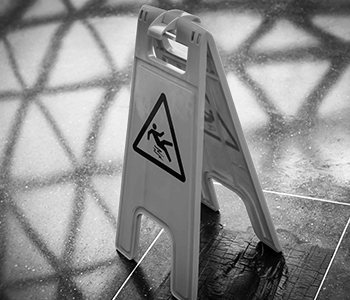RIDDOR
Reporting of Injuries, Diseases and Dangerous Occurrences Regulations 2013 (RIDDOR) is a set of regulations in the United Kingdom that govern the reporting of workplace accidents, diseases and dangerous incidents.
Safety improvement
Compliance with RIDDOR helps organizations identify and address safety hazards and risks, leading to safer working environments. Reporting occupational diseases also ensures that workers receive timely medical attention and that measures are put in place to prevent further cases.
Identify and mitigate hazards
Safer work environments
Prevent accident risks

Legal obligation
Compliance with RIDDOR is a legal requirement in the UK. A RIDDOR report is required if an accident is work related and results in an injury that the Health and Safety Executive (HSE) categorizes as reportable. Failure to report incidents can result in fines and legal consequences for employers.
Legal requirement
Avoid fines and penalties
Ensure compliance

Reputation and trust
Complying with RIDDOR helps organizations build a reputation for being responsible and caring for the well-being of their employees. To achieve this, consistent reporting of incidents provides valuable data that can be analyzed to identify trends and areas for safety improvement to ensure this is a priority.
Responsible image
Prioritize well-being
Build trust

Meeting the requirements of RIDDOR
Compliance with RIDDOR in the UK involves specific steps to ensure that incidents and diseases are reported as required by law.

RIDDOR requirements
Ideagen EHS solution
Familiarize yourself and your organization with the RIDDOR regulations to understand what types of incidents, diseases and dangerous occurrences are reportable.
Ideagen can provide access to up-to-date regulatory information, ensuring that organizations are aware of the latest RIDDOR requirements and any changes in regulations.
Ensure that you can recognize incidents that meet the criteria for reporting under RIDDOR. This includes fatalities, serious injuries, occupational diseases and dangerous occurrences.
The solution can assist in identifying and categorizing incidents that meet RIDDOR reporting criteria, helping users recognize reportable events more easily.
Designate a responsible person within your organization who is responsible for overseeing RIDDOR compliance, incident reporting and record-keeping.
Ideagen allows organizations to designate responsible individuals or roles for managing incident reporting and compliance, ensuring accountability.
Establish clear procedures for reporting and investigating incidents. Incidents should be reported promptly to the appropriate authorities and you should ensure that employees know how to report incidents.
The software streamlines the incident reporting process, making it easy for employees to report incidents promptly using digital forms and mobile devices, improving reporting accuracy and speed.
Ensure the appropriate RIDDOR reporting form is used for the specific incident or disease. Different forms are available depending on the incident, such as F2508 for over-seven-day injuries or F2508A for dangerous occurrences.
Ideagen can provide a central location to store incident and investigation information that may be required when completing the RIDDOR form on the HSE website.
Fatalities and particular incidents must be reported immediately, while others have specific reporting timeframes. Keep thorough and precise records of all reportable incidents, including an analysis of the root cause, for at least three years.
Receive automated reminders and notifications to ensure incidents are reported promptly. The software provides a centralized repository for storing incident records and associated documentation, for the required time period.
Regularly review incident reports and the circumstances surrounding them to identify trends, potential hazards and areas for improvement in your organization's health and safety practices.
Ideagen offers powerful reporting and analytics capabilities, allowing organizations to analyze incident data and identify trends or areas for improvement in their health and safety programs.
RIDDOR FAQs
Fatalities, serious injuries – including fractures, amputations and burns – occupational diseases and dangerous occurrences, such as gas leaks or structural failures, must be reported under RIDDOR.
Employers, self-employed individuals and individuals in control of premises where work is carried out are generally responsible for reporting incidents.
Fatalities and specified injuries must be reported immediately. Occupational diseases should be reported when they are diagnosed. Dangerous occurrences should be reported without delay.
Incidents can be reported online via the HSE's website, by phone, or by post using the appropriate forms provided by the HSE.
Some work-related incidents involving members of the public may not require reporting under RIDDOR, but this depends on specific circumstances. The HSE provide a detailed list of exemptions.
Failure to comply with RIDDOR can lead to fines and legal action against employers and the individuals responsible for reporting.
Records of reported incidents should be retained for at least three years from the date of the incident.
Additional resources
Expand your RIDDOR knowledge with our additional reading.
